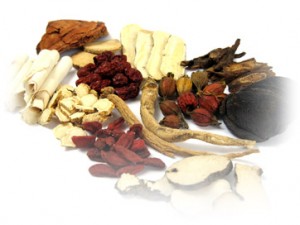 Chinese herbs in the Wall Street Journal? Undoubtably not the place you would expect such a story.
Chinese herbs in the Wall Street Journal? Undoubtably not the place you would expect such a story.
Since the research was done at Yale University, why not? Turns out a combination of four herbs used for about 1800 years in Chinese Medicine has been studied through Yale University and is reported to “enhance the effectiveness of chemotherapy in patients with colon cancer”.
The scientific team led by Yung-Chi Cheng, an oncology researcher at Yale University was funded in part by the National Cancer Institute, is planning to begin Phase II clinical trials. Many conventional medications are derived from individual chemical agents originally found in plants. In the case of Huang Qin Tang, however, scientists so far have identified 62 active chemicals in the four-herb combination that apparently need to “work together” to be effective.
Josephine Briggs, head of the National Center for Complementary
and Alternative Medicin (CAM) said about this herbal combination,
“It’s polypharmacy,” or the equivalent of several drugs being administered at once.
Dr. Cheng began his research on Huang Qin Tang about a dozen years ago when he sought a better way of dealing with the chemotherapy’s side effects. Dr. Cheng, who grew up in Taiwan, and turned to Traditional Chinese Medicine, (TCM) which often uses herbal combinations for gastrointestinal problems. He decided to test whether it could help cancer patients without compromising the effectiveness of the chemotherapy.
The Chinese herb formula Huang Qin Tang contains: Huang Qin 36%, Da Zao 16%, Bai Shao 24%, and Zhi Gan Cao 24%. Scientists have found over 62 chemicals when these four herbs are cooked in an aquaous solution, boiled in water.
The potential in Chinese herbal medicine is vast indeed.
What will they find next?
Note:
Chinese herbs in places like Japan, Taiwan and China have been used for centuries and their reputation in the healthcare system is undeniably successful. Chinese herbal medicines health insurance coverage is part of the national health insurance in these Asian countries

